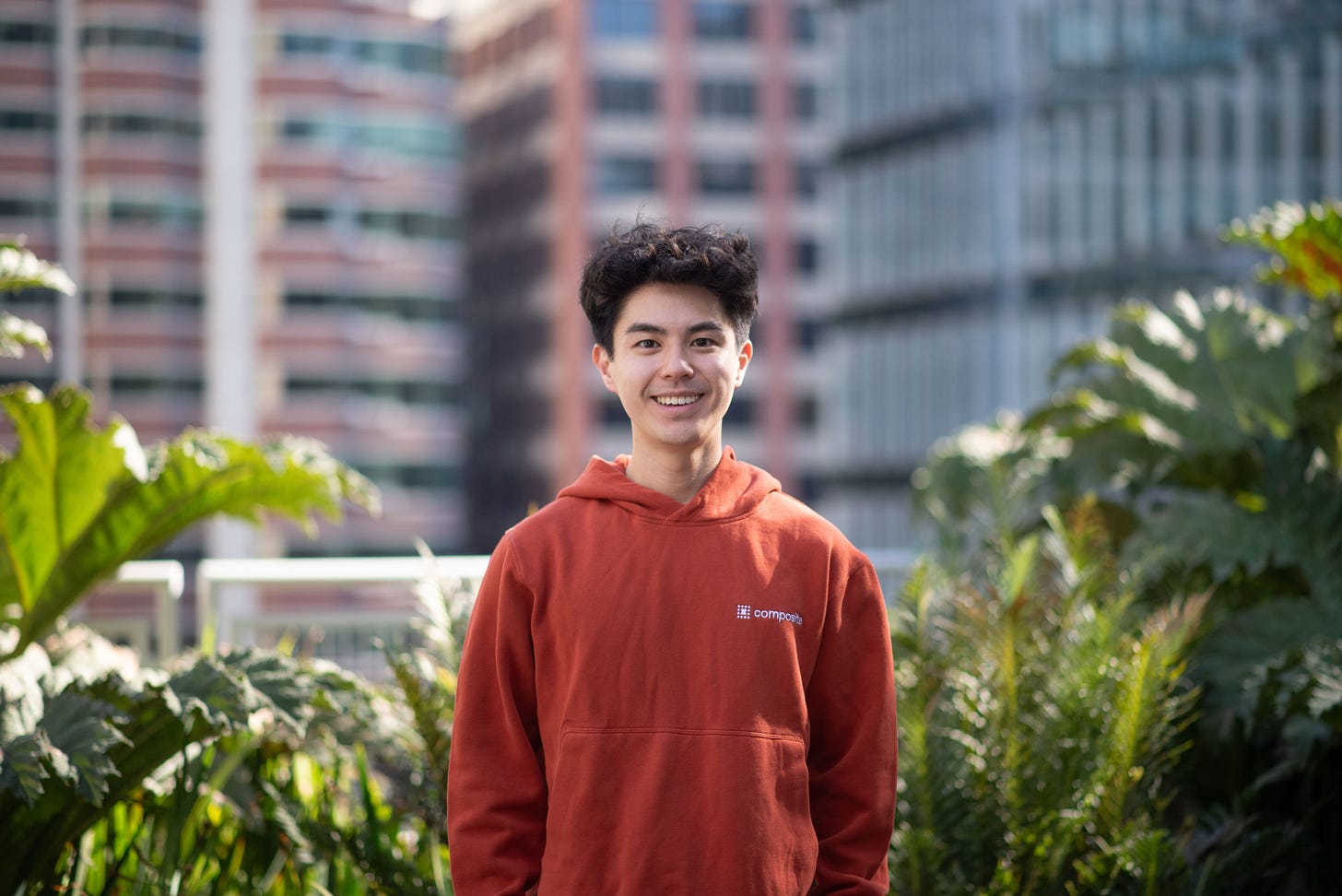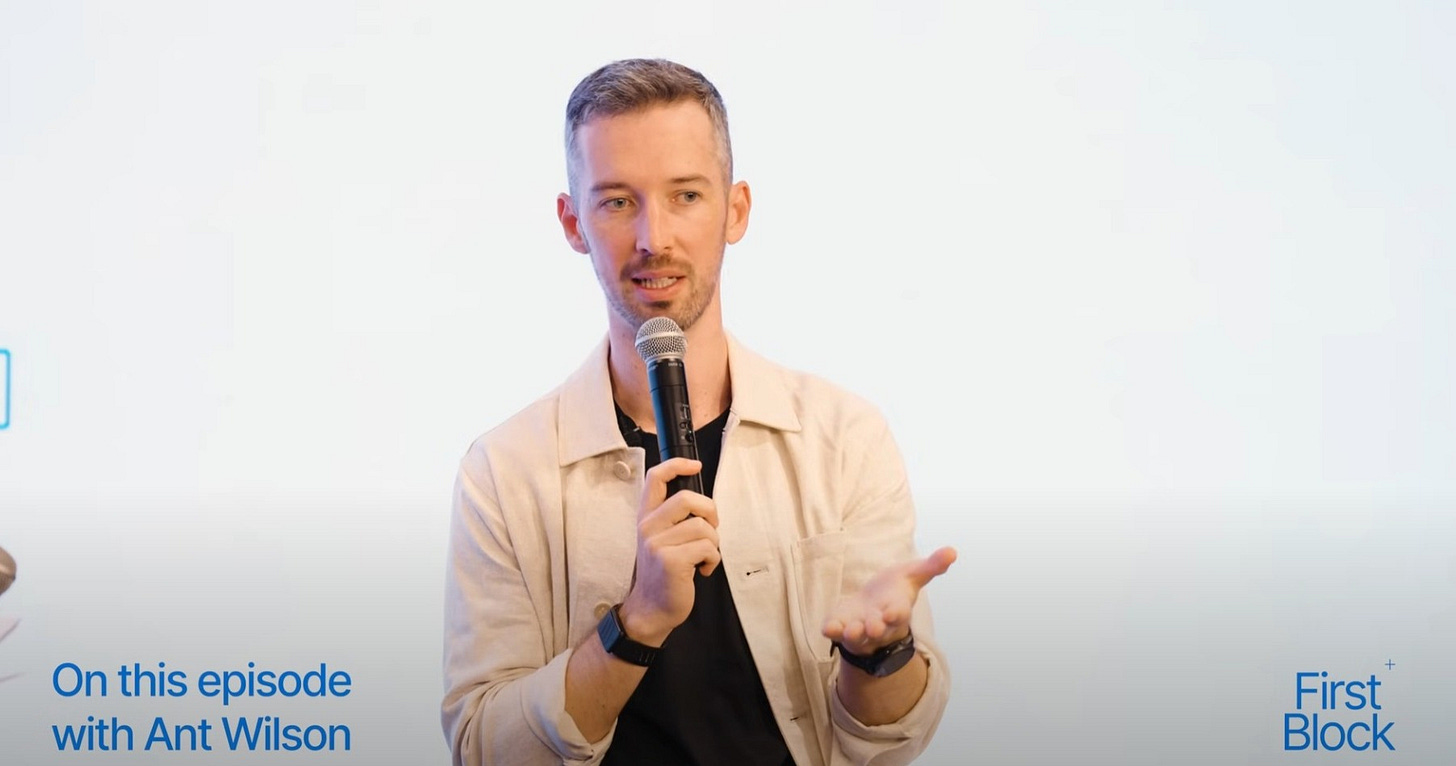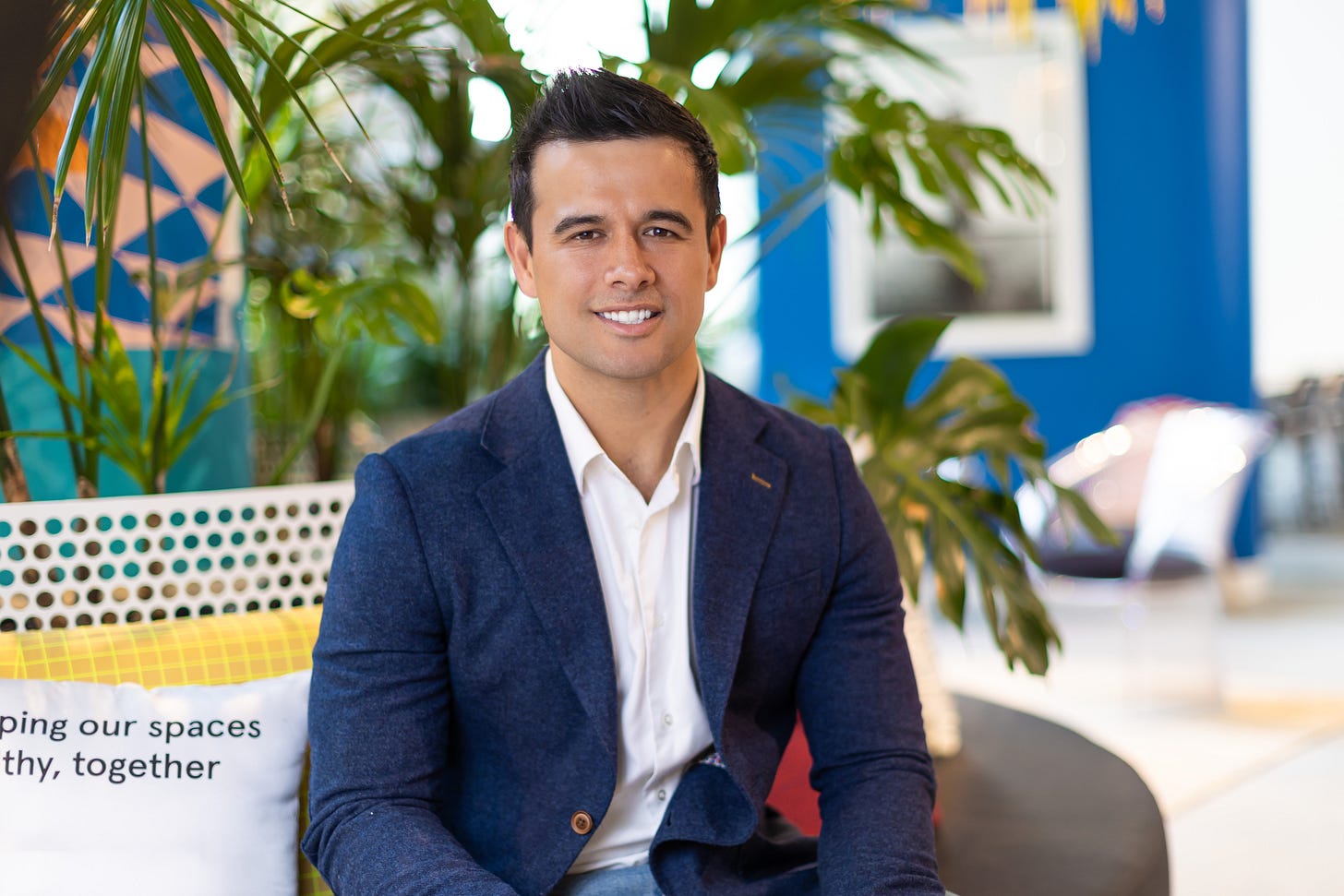NZ's 'smartest teen' raises $9.5m for new AI startup
Plus: Sora 2 is here. Yay, I guess?
Kia ora Caffeinators,
Happy Wednesday arvo. No time for wasting reading this intro, let’s just get into it shall we?
Here’s what’s brewing in your Daily Shot:
NZ’s ‘smartest teen’ raises $9.5m for new AI startup
Event: Building a Strong Startup: Ask a Lawyer and Founder Your Tough Questions
Podpick: First Block, $2B and 3M Devs Here’s How Supabase Did It
Sponsored: From Auckland to Anywhere: Deel and the infrastructure of global growth
Sora 2 is here
As always, thank you to everyone who has upgraded to a paid subscription or simply recommended Caffeine to friends and whānau. We couldn’t do any of this without you.
Finn and the CAFFEINE team
NZ’s ‘smartest teen’ raises $9.5m for new AI startup: Put this in the ‘founders shockingly successful at an intimidatingly young age‘ file. Yang Fan Yun, who made headlines back in 2019 as NZ’s smartest teenager, has put those brains to use and is storming Silicon Valley with a new AI startup ‘Composite’.
Their product runs in your browser and learns to predict and automate a lot of the digital grunt work that many of us (me) spend most of our time doing. While there are plenty of people playing in this space, Composite have impressed some massive investors with their pitch to the tune of almost $10m NZD in their seed round. The round was led by Nat Friedman and Daniel Gross of NFDG, with participation from Menlo Ventures, Anthropic’s Anthology Fund and Icehouse Ventures.
While only coming out of stealth now, its already used by professionals at hundreds of companies including Google, Uber, Tesla, Salesforce, and Reddit. Great to see a success story like this and also love to see some local VCs getting in on the action. Yang actually interned at Icehouse Ventures one summer and clearly left an impression.
“Yang is the type of founder where the first question you ask is ‘Can we invest?’ And we did ask, multiple times. The second is ‘What are you working on?” said Icehouse Ventures CEO Robbie Paul.
“Composite first investment round was a deal that brought in the who’s who of Silicon Valley. The likes of Daniel Gross, who recently joined Meta’s AI Superintelligence lab, and former GitHub CEO Nat Friedman each became investors. 99.99% of founders could never get a call with people like that. Yang has done it in his first startup, well before his 25th birthday. There are plenty of super bright individuals in the world – but few that have the tenacity and commercial drive of Yang. We look forward to supporting him to build the Composite empire.”
Event - Building a Strong Startup: Ask a Lawyer and Founder Your Tough Questions - I’m conscious that in this newsletter I often shout out in person events in various locales which could add to the cost of attendance in time and money if you’re coming from out of town. So want to highlight a few more free webinars to ensure there’s maximum access for everyone in the community.
This is a great one for startups wanting to ensure their Ts are crossed and Is are dotted and get answers to any questions about setting up your business, raising capital, or managing legal risks. Join the team from LegalVision on Tuesday, 14 October at 12 pm NZDT. You can pre-submit your questions or ask them live.
Georgina Toomey (Managing Director, LegalVision) and Jovan Pavlicevic (Co-Founder, Emerge) will answer your questions and explore:
structuring your business for growth and success;
capital raising dos and dont’s; and
avoiding common legal pitfalls for startups.
Podpick: First Block, $2B and 3M Devs Here’s How Supabase Did It - Supabase is one of those Kiwi co-founded billion dollar companies which I feel like people aren’t talking about nearly as much as they should be considering its astronomical success. So I was chuffed to see co-founder and CTO Ant Wilson on the First Block Podcast with our mates over at Notion unpacking the early, hardest parts of building a global juggernaut. Highly recommend giving it a listen below.
From Auckland to Anywhere: Deel and the infrastructure of global growth
When Kiwi founders talk about “going global,” the phrase can be heavy with ambition but light on the nuts and bolts.
Expanding into new markets sounds exhilarating in pitch decks but on the ground it often means drowning in lawyers, accountants, payroll vendors, visa agents, and endlessly complex drudgery.
It’s the part of the growth journey nobody romanticises, but it’s also the part that decides whether international expansion takes months or years - if it happens at all.
That’s the problem Deel is trying to solve.
Founded in 2019, the company has grown into one of the most valuable players in HR tech, recently crossing a billion-dollar annual revenue run-rate and supporting more than 35,000 businesses across 150 countries. Its pitch is simple but consequential: let companies hire, pay, and manage people anywhere in the world.
For Shannon Karaka, Deel’s Country Leader & Head of Expansion for AUNZ, the value proposition boils down to speed and certainty.
“If you’re a New Zealand founder with a small team in Auckland and you’ve just raised a seed or Series A round, the first question is usually: how do I get feet on the ground in the US, the UK, or Europe? The old answer was months of entity setup, compliance headaches, and a big legal bill.”
Karaka stresses that New Zealand is an exciting proposition for Deel, with a focus on the kind of high growth and ambitious startups we champion here at Caffeine.
“In the New Zealand context, the companies we work with might only have 20 or 30 people locally, but they’re growing fast and they’re ambitious. They’re not yet multinationals, but they need multinational infrastructure. That’s where we come in. As a partner for international growth where we make the runway smoother,” Karaka says.
“There’s this idea of a borderless world in tech. Then you try to operationalise it and the borders come rushing back. Founders underestimate how fragmented payroll is, or how tricky worker classification can be. You think you’re just signing a contract, but if you get it wrong you’re on the hook for penalties.”
He’s adamant the value for founders is letting them stay focused on the business instead of learning payroll law at 11pm.
“Put yourself in a founder’s shoes. They’re busy. The last thing they want is to study labour legislation,” he says. “We look after compliance and payroll. We provide HR support in every country. They don’t need to worry about that - we’ve got it covered. Especially for startups and small businesses, that’s a massive value add. It lets them stay flexible and move fast on the right things.”
I asked Karaka what kind of questions founders should be asking themselves more often and he had a pretty simple but effective one top of mind.
“Start with why,” he says. “Why are you expanding? Is it access to a talent pool you can’t get locally? Great but know the landscape you’re stepping into. Every country has quirks. The Philippines has 13th- and 14th-month salaries; some countries announce public holidays with little notice and your payroll needs to adjust. In parts of Europe, severance obligations are significant. The US and UK are popular with Kiwis for obvious reasons, but they’re not the only right answers. If you don’t have time to do the research, you’ll miss options.”
He’s seen the same mistake of founders being reactive instead of proactive too often.
“A lot of founders don’t know what they don’t know. The biggest problem is the one you don’t realize you’ve got,” he says. “Wrongly classifying workers as contractors is a classic trap. Hiring contractors is quick and looks inexpensive, but classification rules vary and no single factor decides status; assessment is contextual and often complex.
“If you’re unaware of what the law stipulates in a location and you hire anyway, the consequences of getting it wrong can be significant. There are resources available for free that will help you avoid having to learn the hard way.”
And Deel has walked the talk. As a company that evolved during the great pivot to work from home and now manages 7000 employees fully remote, Karaka says Deel has learned all of the lessons it can teach founders by living them itself.
“We’re our biggest customer,” he says. “From day one we were global founders from different countries, leadership spread across time zones. Setting up entities everywhere was a multi-year endeavour. Regulations change constantly. We’ve had thousands of experts in-house and counsel in every country because we had to. Most companies won’t have that resource so we did the heavy lifting so they don’t have to. We’ve been down the path and paid the pain tax.”
Of course being 2025, there is no conversation that can be had without touching on the AI of it all. Deel’s approach to AI is pragmatic, seeing where the tools are useful and not performative.
“Global HR, payroll, employment is complex. Being able to type into Deel AI, ‘What should I know about employing in the Philippines?’ and get a usable briefing in a few prompts - that’s valuable,” Karaka says.
“It gives you a baseline fast instead of trawling through pages and being more confused at the end. We’ve also launched AI agents in payroll. There’s a lot of manual process and reconciliation; agents can spot anomalies, explain variance, and fix obvious issues. You still want a human in the loop. I wouldn’t want a bot approving final payroll but a huge amount of the drudgery can and should be automated. Free the human to do the work that’s actually useful.”
Where does he see the future of Deel? The goal is bold, to say the least.
“The Holy Grail is to be all things for more businesses - not by pretending, but by actually reducing the number of systems companies rely on,” Karaka says.
“Mid-market and enterprise are often running on a dozen-plus tools. If you can consolidate that into a few that play nicely, they will. Startups are time- and resource-poor; they want one trusted provider for hiring, payroll, immigration. The trend we’re seeing is consolidation.”
For founders reading this and weighing their first hire overseas, he wants the takeaway to be simple: What looked impossibly complex is solvable. Someone’s already built the infrastructure, so now you don’t have to figure it out alone.
He also wants founders to resist the false choice between speed and compliance. The old adage of moving fast and breaking things can be heavier on the former and lighter on the latter. It’s about moving a hundred miles an hour but making sure there isn’t a ninety-degree turn up ahead that you didn’t see coming.
For a startup ecosystem where ambition has outpaced infrastructure, Deel’s promise is pragmatic: to make the messy, boring, but mission-critical parts of global growth less daunting.
Sora 2 is here. Yay, I guess?: I will get more into this one tomorrow because there is a LOT going on in the OpenAI world currently but click the slightly eerie pic above to see what will be making half the content in your feed before long. I remember being the newsroom when Sora, the video generator for Open AI, first dropped and I remember thinking ‘well, shit. This will change everything, eventually’.
Not exactly a bold prediction in hindsight but it is interesting to me that as AI video has accelerated, the backlash has come faster than I expected and the so have the harms. A.I slop is already choking so much of the internet and combined with OpenAIs move into the social media space (more on that tomorrow) I think we’re in danger of using the latest technology to recreate some old harms just much more effectively.
That’s it for today, thanks for reading. Want to get in touch with a news tip, bit of feedback or just to chat? Email hello@caffeinedaily.co










